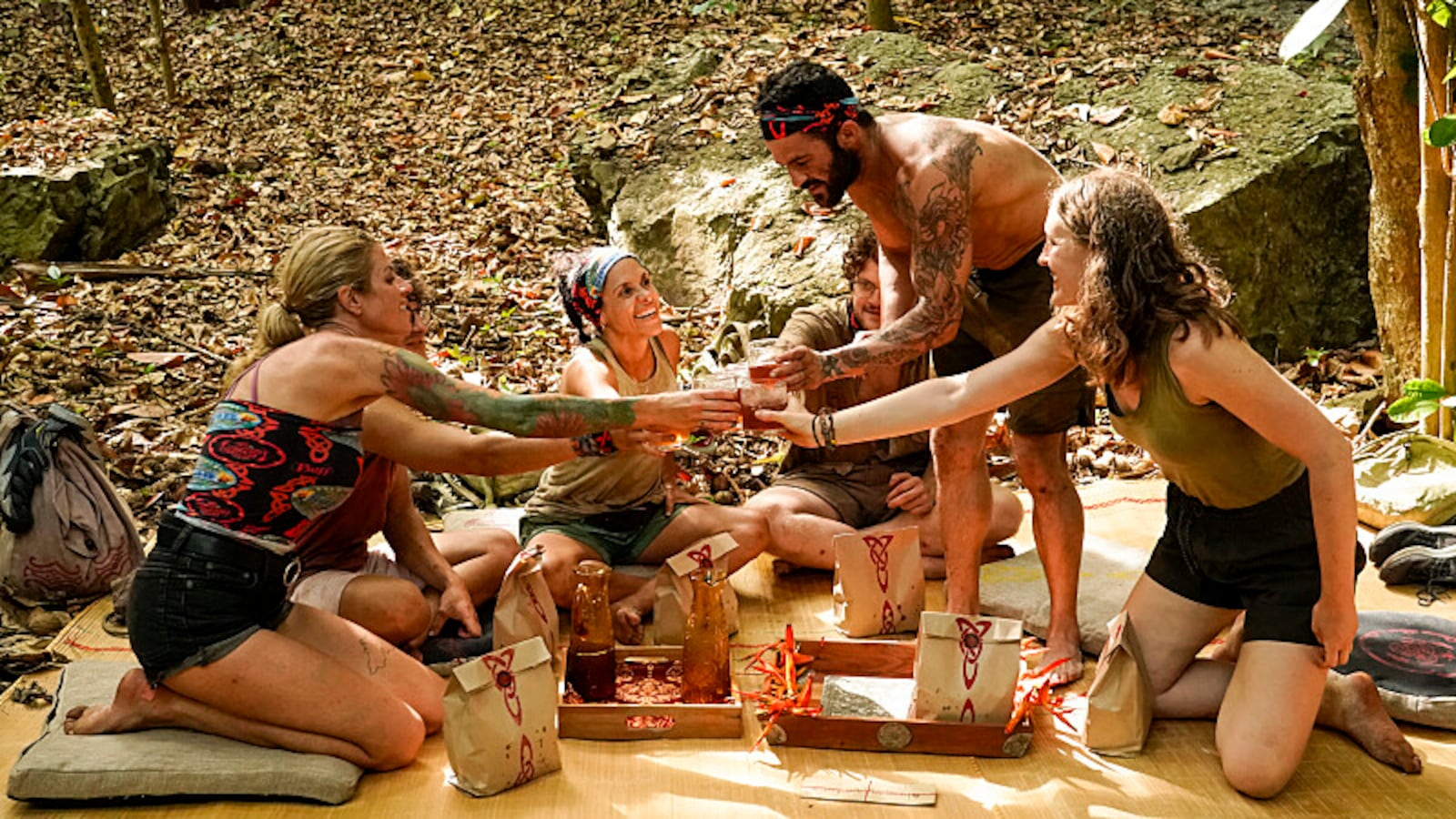On Wednesday evening, following this week’s Survivor, my fiancé and I got into a heated debate: Was there a mathematical way that Heidi could have played her advantage more accurately at Tribal Council?
Now, bear with me, especially if you’re not a regular Survivor watcher.
In a vote of 3 to 2, Matt was voted out in this last episode, but the information that viewers were taking into the vote is that Matt had an immunity idol that he believed was real, but was actually a fake one supplied to his tribemate Danny after Danny found his real idol. Danny then planted it as a real one, which Matt found and believed to be valid. Also, Matt had something called a “shot in the dark,” which was introduced in Season 41 as a means for a contestant on the outs to play; the idea is you have a six in one chance at immunity. But that advantage, as well as his fake immunity idol, were in his bag at the merged tribe’s camp, which he was removed from when his surprise split tribe lost the individual immunity challenge.
Additionally in this episode, despite the three initial tribes being merged, the tribes were split again during individual immunity in another twist. Matt was part of the majority, but because of the split, ended up on the outs when the merged tribe was split six players to five for an unconventional Tribal Council where only the five “unsafe” contestants would vote. Oh, an additional twist was introduced where the six immune contestants searched the forest for a key to a birdcage, which contained an advantage that allowed one of them to make one of the five voting members vote at their own will. Heidi had a woman named Lauren, who had an extra vote, cast her vote for a man named Yam Yam. Matt still went home.
If you read all that and are thinking, “Pardon?,” you are not alone.

After 44 seasons, that’s where we’re sitting with Survivor, and it’s, frankly, annoying. I recently took a trip to see my mom for her birthday, and as every 30-something does at the end of the night on a trip home, I scanned the TV for something to watch. I chose to rewatch the back half of Season 2 of Survivor, where Tina Wesson beat Colby Donaldson for the million-dollar prize, largely due to her social savvy. And I considered where Tina might fall in the architecture of the current game. I settled on the fact that Tina’s head might explode at the thought because Survivor has so desperately tried to out maneuver itself that we’re in an era of total chaos.
What makes it all the more frustrating is that we’re 44 seasons (roughly 22 years) into the franchise. For outsiders who can’t conjure up a better punchline, Survivor fans often hear, “Is that still on?” But for the die-hards, Survivor is a weekly staple. We don’t tune in because we’re bored and couldn’t find anything else among the thousands of hours of content being produced. Survivor is a conscious choice. For me, it dates back to Tina—the hometown hero who pulled out a win against the odds. For others, it’s the dogged social play of Sandra Diaz-Twine, or the manipulative prowess of the ever-smarmy Boston Rob Mariano. For whatever reason a Survivor fan returns, there’s something special about the legacy of this very bizarre competition show that has served as the blueprint for so many other reality shows to follow it.
But the problem with the new era of Survivor (which, for all intents and purposes, is still smarter than a lot of its competition) is that it neither seems to believe in its original product nor its original fan base. Again, because it bears repeating, this is a show that has produced 44 seasons. It’s still pulling solid viewership (especially for network television) two decades deep into its run. But on nights like tonight, when the twists and turns are so complex and overwrought that previous players can’t tell which way is up, you can’t help but feel a bit disappointed.
In the series’ later seasons (say, season 35 and beyond), it has become more and more reliant on advantages being placed in the game. It’s notorious enough that one season, fan favorite Cirie Fields was eliminated from competing because every other person at Tribal Council was immune thanks to their advantage play. That season was arguably a shoo-in for Fields to win but with so many producer-provided caveats in play, Fields was the de facto eliminee.
How effective is any game if a player can be eliminated because the rules aren’t clear enough to protect the integrity of its players? Since then, the rules have routinely changed, whether the intent was to protect a perceived favorite of the producers or to keep the game fresh. Reinvention is a necessity of pop culture, sure, but it does a disservice to the fans who have committed 20 years or so to the franchise.
I think about other shows that have faced the same longterm conundrum. Two come to mind. The first, Top Chef, has run for a total of 17 years through 20 seasons. The series has carried on with roughly the same format, pulling far fewer punches, and yet the fanbase remains deeply engaged.
On the other hand, though it’s scripted, I think of another favorite of mine: Grey’s Anatomy. It’s one of those shows that has practically turned itself upside down to shake out all of its tricks and surprises, and yet, the most refreshing the show has been has been in its most recent season, when it cleared house of its old characters and returned to its original narrative format, following five interns who don’t know any better.
In this era of television where there’s beaucoups of programs that will only last two or three seasons, Survivor remains a gem, if for no other reason than because it’s a relic of a time when shows could have a shelf life that goes for literal decades.
You could argue that Survivor should follow the smart example of its scripted counterparts like Ted Lasso or Succession—go out on top! Be the thing that’s missed, as opposed to the thing that’s ruined. But the thing about Survivor is that it has all the potential to hit 50 or 60 seasons before the fickle sickle of the TV grim reaper finds its way to Jeff Probst’s pride and joy. The key to that is within its fandom.
Unlike series like The Circle or Big Brother, which routinely reach into the C-list hopefuls trying to make something of Hollywood fandom, Survivor’s applicant pool is one of fervent fans who have studied the game. Let those people reinvent the way the game is played. Let them manipulate the rules from within the system. The key to a successful Survivor season rests in the fervor of its fanbase and potential players. As someone who has worshiped at that Survivor altar for 20 years, I believe the key to a good game is all in how you play—not how complex production wants to make a seemingly perfect challenge.
Keep obsessing! Sign up for the Daily Beast’s Obsessed newsletter and follow us on Facebook, Twitter, Instagram and TikTok.






